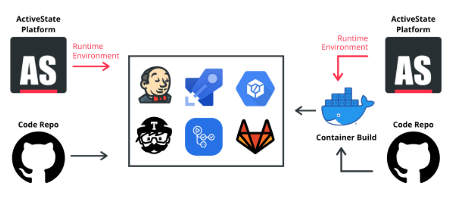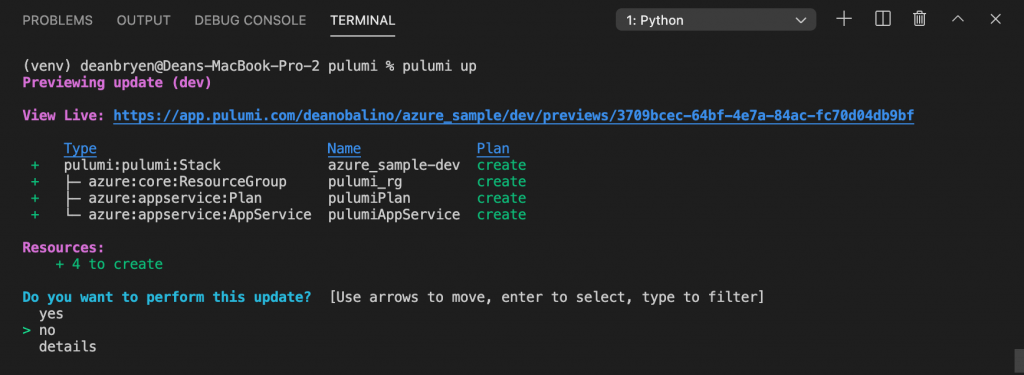
- Introduction
- Importance of Python in DevOps
- Automation with Python Scripts
- Using Python for Configuration Management
- Integrating Python with CI/CD Tools
- Monitoring and Logging with Python
- Scripting for Cloud Services (AWS, Azure)
- Debugging and Best Practices
- Infrastructure as Code with Python
- Advanced Use Cases of Python in DevOps
- Conclusion
Introduction
In the rapidly evolving world of DevOps, automation, efficiency, and seamless integration are crucial for delivering high-quality software at speed. Python, with its simplicity, versatility, and extensive library ecosystem, has emerged as a key programming language in DevOps workflows. From automating repetitive tasks to managing infrastructure and cloud services, Python Training empowers DevOps engineers to streamline processes and optimize development pipelines. This article delves into the importance of Python in the DevOps realm, highlighting its role in automation, configuration management, CI/CD integration, monitoring, and cloud services. By exploring the diverse ways Python enhances DevOps practices, we will understand how it enables teams to improve efficiency, reduce errors, and ensure consistency across complex environments. Whether you’re provisioning infrastructure, managing containers, or orchestrating cloud resources, Python’s robust capabilities make it an indispensable tool for modern DevOps professionals.
Importance of Python in DevOps
- Simplicity and Flexibility: Python is easy to learn and write, making it ideal for DevOps engineers to quickly develop and maintain scripts. This simplicity reduces the learning curve and accelerates adoption in teams.
- Extensive Library Support: Python offers a wide range of libraries that support automation, scripting, and integration with various DevOps tools. This extensive ecosystem allows DevOps professionals to leverage pre-built solutions, saving time and effort.
- API Interaction: Python’s ability to interact with APIs makes it effective for integrating with multiple DevOps tools and services. This enables seamless communication between different systems and tools, facilitating automation.
- Infrastructure as Code: Python helps manage configurations and automate infrastructure, making it essential for Devops Testing Strategy . This approach ensures consistency and repeatability across various environments.
- Cross-Platform Compatibility: Python works seamlessly across different platforms, enhancing its utility in diverse DevOps workflows. Its ability to run on multiple operating systems allows DevOps teams to work in heterogeneous environments.
- Widely Used in CI/CD Pipelines: Python is commonly used in Continuous Integration and Continuous Deployment (CI/CD) pipelines to automate tasks and ensure faster delivery. It simplifies the orchestration of different stages in the software development lifecycle.
- Monitoring and Cloud Infrastructure Management: Python plays a key role in monitoring systems and managing cloud resources, contributing to more efficient DevOps operations. With its ability to interface with cloud APIs, Python automates resource provisioning and scaling.
- Automation with Frameworks: Tools like Fabric, Ansible, and SaltStack simplify automation, reducing operational complexity. These frameworks allow DevOps teams to write concise scripts that automate repetitive tasks and enforce best practices.
Become a Python expert by enrolling in this Python Online Training today.
Automation with Python Scripts
Python enables automation across various stages of software development, from code integration to deployment. By writing scripts, teams can automate repetitive tasks such as provisioning servers, deploying applications, and running tests. Python’s extensive libraries, including Paramiko for SSH automation, Pytest for testing, and Requests for API communication, make it a powerful automation tool. In DevOps, automation with Python reduces human errors, improves efficiency, and ensures consistency across environments. For instance, Devops Engineer vs Cloud Engineer can automate infrastructure provisioning using Terraform or manage containerized applications with Docker. Python-based automation integrates seamlessly with tools like Jenkins, GitHub Actions, and Azure DevOps. Additionally, automation with Python facilitates batch processing, log file analysis, and event-driven workflows, making DevOps operations more streamlined and effective.
Using Python for Configuration Management
Configuration management ensures systems are set up consistently and correctly across different environments. Python is widely used in configuration management tools such as Ansible, SaltStack, and Puppet. These tools use Python-based scripts to define infrastructure states and enforce configurations. Python allows DevOps teams to automatically manage system settings, install packages, and enforce security policies. Python-based configuration management helps maintain uniformity, reduces configuration drift, and ensures compliance with infrastructure standards. Python scripts also enable real-time configuration updates and rollbacks in case of failures. Additionally, Python’s YAML and JSON parsing capabilities help manage configuration files dynamically, ensuring high flexibility and adaptability to different environments.

Integrating Python with CI/CD Tools
- Seamless Integration with CI/CD Tools: Python integrates smoothly with popular CI/CD tools like Jenkins, GitLab CI/CD, Azure DevOps, and CircleCI, facilitating automation in software release pipelines.
- Trigger Builds and Deploy Applications: Python scripts can automate tasks such as triggering builds, running automated tests, and deploying applications, reducing manual intervention in the development process.
- Managing Configuration Files: With libraries like PyYAML and JSON, Python can manage configuration files, ensuring consistent and efficient orchestration of deployments.
- Interacting with CI/CD Tool APIs: Python can interact with the APIs of CI/CD tools to fetch build statuses, analyze logs, and Devops Automation Tools Enhancing Efficiency, ensuring smooth workflow integration.
- Speeding Up Development Cycles: Python-based automation accelerates development cycles, reducing the time between code commits and production deployments.
- Reducing Deployment Errors: By automating tasks within the CI/CD pipeline, Python minimizes human errors and enhances the consistency and reliability of deployments.
- Automated Rollback Mechanisms: Python facilitates automated rollback processes, allowing teams to quickly revert faulty deployments without causing significant disruption to operations.
- Improving Software Reliability: Python-driven CI/CD automation ensures faster, error-free deployments, contributing to overall software quality and system stability.
- Efficient Debugging: Tools like pdb, PyCharm Debugger, and logging frameworks allow DevOps teams to identify and resolve issues quickly through step-by-step debugging and error tracking.
- Modular and Reusable Code: Writing modular and reusable code improves maintainability, promotes collaboration, and simplifies debugging in Devops Automation Tools Enhancing Efficiency .
- Error Handling and Security: Implementing proper error handling and following security best practices ensures that scripts run smoothly and securely, reducing the risk of failures or vulnerabilities.
- Virtual Environments for Stability: Using virtual environments and dependency management tools like pip and Poetry ensures consistency and stability across different systems and environments.
- Enhancing Automation Reliability: Best practices like proper exception handling, logging, and code optimization lead to more reliable automation scripts, improving overall DevOps efficiency.
- Reducing Technical Debt: Adopting best practices minimizes technical debt by maintaining clean, structured, and maintainable code, ultimately leading to faster and more effective development cycles.
- Security Automation: Python enables security scanning, vulnerability assessments, and compliance checks, ensuring systems adhere to security best practices and reducing risks.
- Container Orchestration: Python supports Kubernetes orchestration through libraries like Kubeconfig and Helm, allowing efficient management of containerized applications, automated deployments, and microservices scaling.
- Predictive Analytics: Python-based machine learning and AI models can predict infrastructure failures, Automate Security with Devsecops Approach , and improve performance monitoring for proactive problem-solving.
- Self-Healing Infrastructure: Python scripts play a key role in self-healing infrastructure by detecting failures, initiating corrective actions, and restoring services automatically, reducing the need for human intervention.
- Enhanced Reliability and Reduced Downtime: Through automation and intelligent scripting, Python helps improve system reliability, minimize downtime, and maintain high availability of services.
Advance your Python career by joining this Python Online Training now.
Monitoring and Logging with Python
Monitoring and logging are essential for tracking application performance and identifying issues. Python’s built-in logging module and libraries like Loguru and ElasticSearch enable efficient logging and analysis. Python can also interact with monitoring tools such as Prometheus, Grafana, and Nagios. Python scripts help collect, process, and visualize logs in real time. They can also send alerts and generate reports based on system metrics. By integrating Python with monitoring solutions, DevOps teams can proactively detect performance bottlenecks and security threats, ensuring system stability and uptime. Furthermore, Python-based monitoring enables predictive analytics, helping organizations identify potential failures before they occur and ensuring high service availability.Additionally, Python’s flexibility allows for seamless integration with Understanding the Devops Periodic Table monitoring services like AWS CloudWatch, Azure Monitor, and Google Cloud Operations Suite. This enables organizations to centralize their monitoring data across different environments, whether on-premises or in the cloud. Python scripts can be used to collect logs from various sources, aggregate them, and push them to these cloud platforms for further analysis. By automating log collection and analysis, Python helps reduce manual efforts, improve troubleshooting times, and enhance decision-making processes. With real-time monitoring and alerts, teams can respond to issues faster and maintain optimal application performance, improving both user experience and operational efficiency.
Ready to excel in Python? Enroll in ACTE’s Python Master Program Training Course and begin your journey today!
Scripting for Cloud Services (AWS, Azure)
Python is extensively used to manage cloud services like AWS, Azure, and Google Cloud Platform (GCP). AWS Boto3 and Azure SDK provide Python-based APIs to automate cloud resource provisioning, scaling, and monitoring. Python scripts can automate tasks such as creating virtual machines, managing storage, configuring networking, and Python Training applications on cloud platforms. Infrastructure automation with Python reduces manual intervention, optimizes resource allocation, and enhances cloud security. DevOps teams leverage Python to build cloud-native applications with improved scalability and resilience. Additionally, Python enables serverless computing with AWS Lambda and Azure Functions, allowing efficient task execution without managing infrastructure.
Debugging and Best Practices
Are you getting ready for your Python interview? Check out our blog on Python Interview Questions and Answers!
Infrastructure as Code with Python
Infrastructure as Code (IaC) automates infrastructure provisioning and management through code. Python supports IaC tools like Terraform, AWS CloudFormation, and Pulumi, allowing teams to define infrastructure declaratively. Python for IaC ensures consistency, version control, and repeatability in infrastructure management. Python scripts can dynamically generate configuration files, validate infrastructure templates, and automate deployments. This approach minimizes configuration drift, accelerates provisioning, and enhances disaster recovery capabilities. Moreover, Python allows infrastructure state validation through automated testing frameworks, ensuring configurations remain compliant with best practices and security standards.

Advanced Use Cases of Python in DevOps
Conclusion
Python is a fundamental tool in modern DevOps workflows, enabling automation, integration, and infrastructure management. Its flexibility, extensive libraries, and seamless cloud integration make it indispensable for DevOps engineers. By leveraging Python, teams can optimize CI/CD pipelines, enforce configuration management, and enhance monitoring capabilities. Furthermore, Python’s simplicity and readability ensure that teams can quickly adopt and scale their automation processes across complex environments. The growing number of Python-based DevOps tools, frameworks, and libraries allows organizations to stay ahead of the curve and adapt to new challenges. As a result, Python continues to empower DevOps professionals to drive continuous improvement and innovation within their development lifecycle. Following best practices ensures robust, scalable, and secure Python Training automation, driving efficiency and reliability in software development and deployment. Python’s continuous evolution, growing ecosystem, and deep integration with modern DevOps tools make it a strategic choice for organizations looking to build resilient, automated, and highly efficient DevOps processes. As DevOps continues to evolve, Python’s adaptability and powerful scripting capabilities will remain essential in driving innovation and operational excellence.





